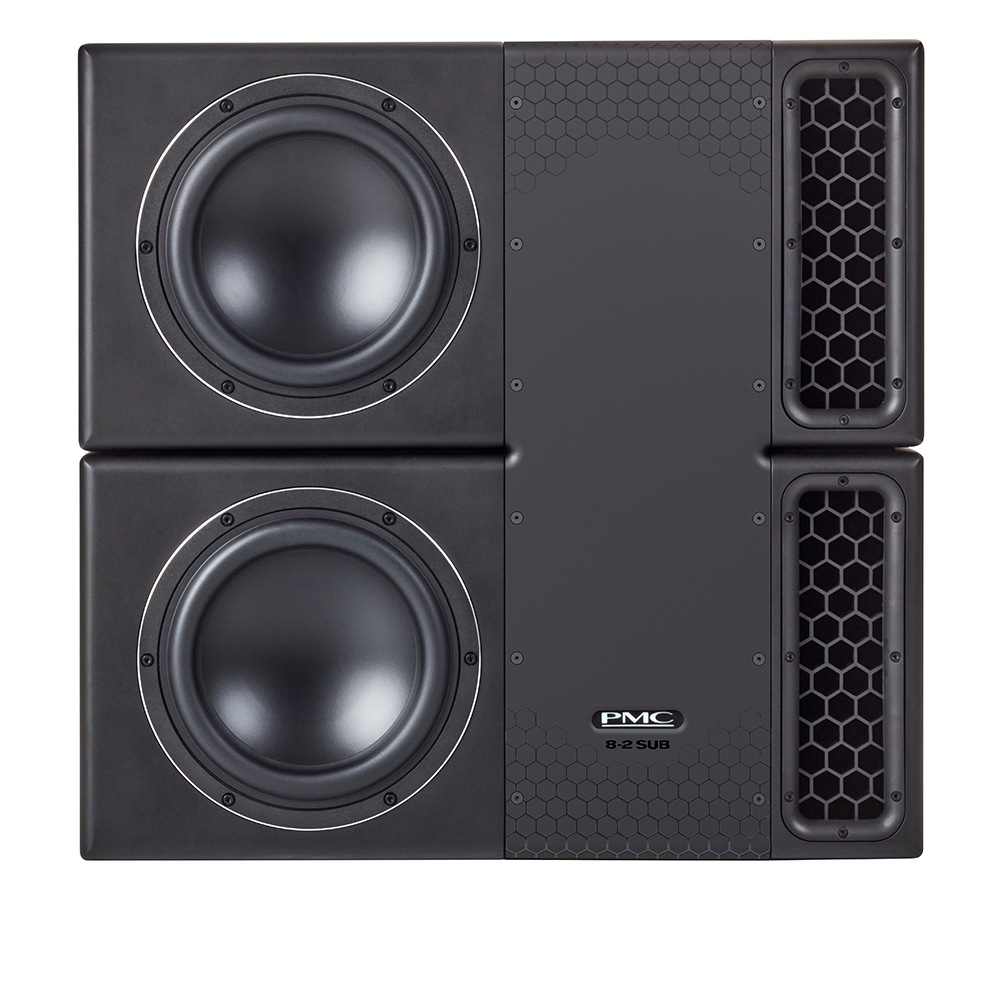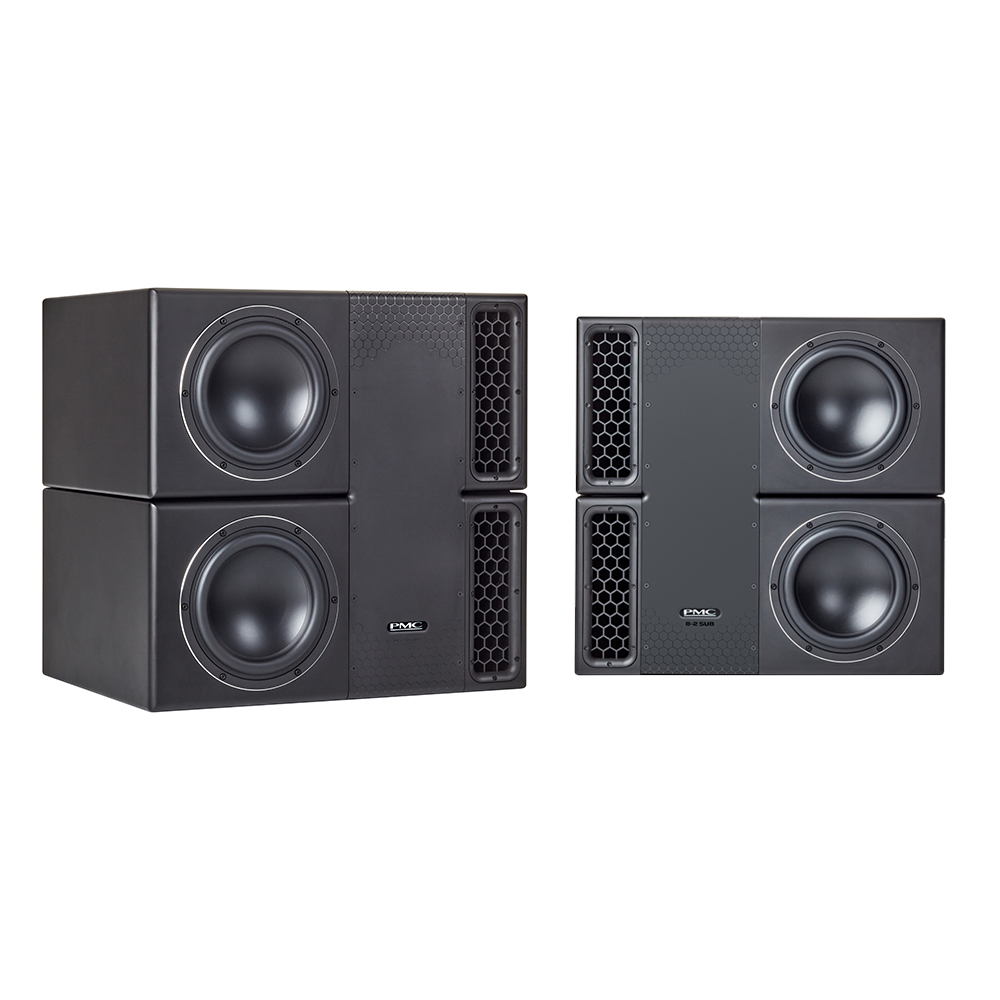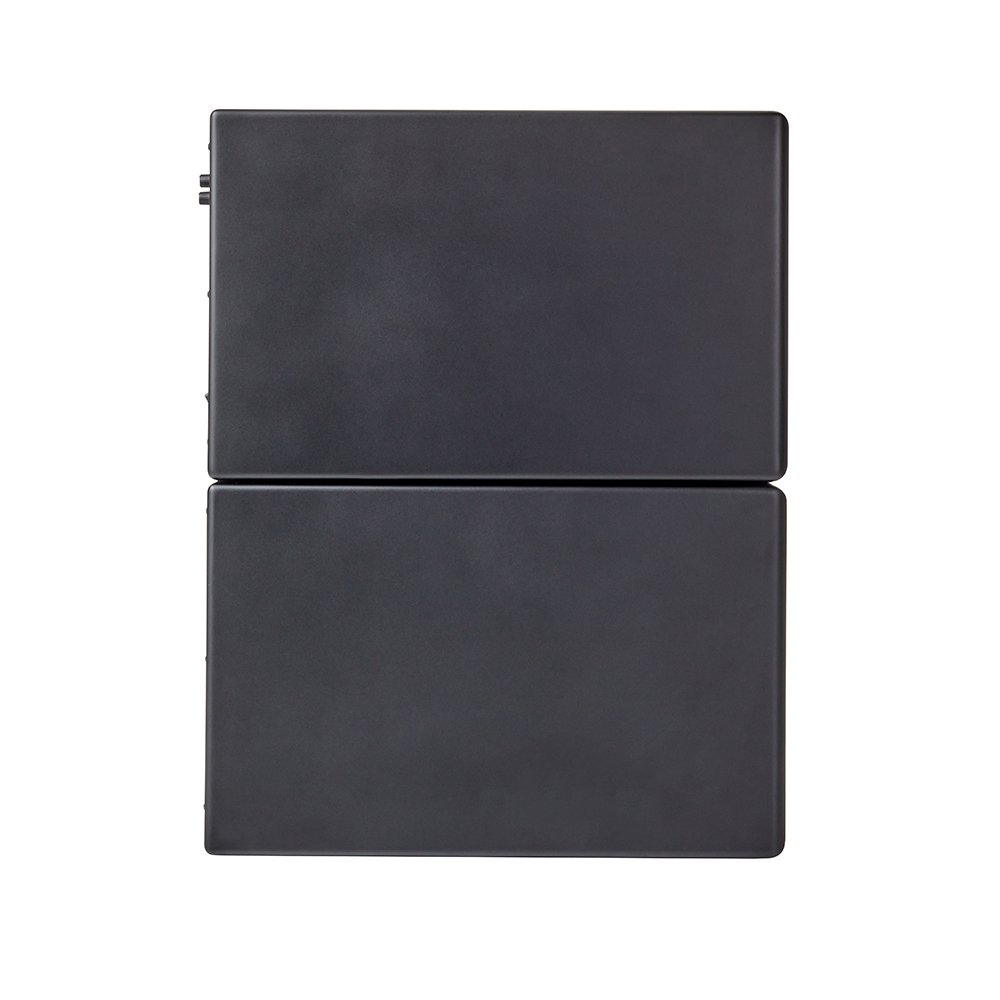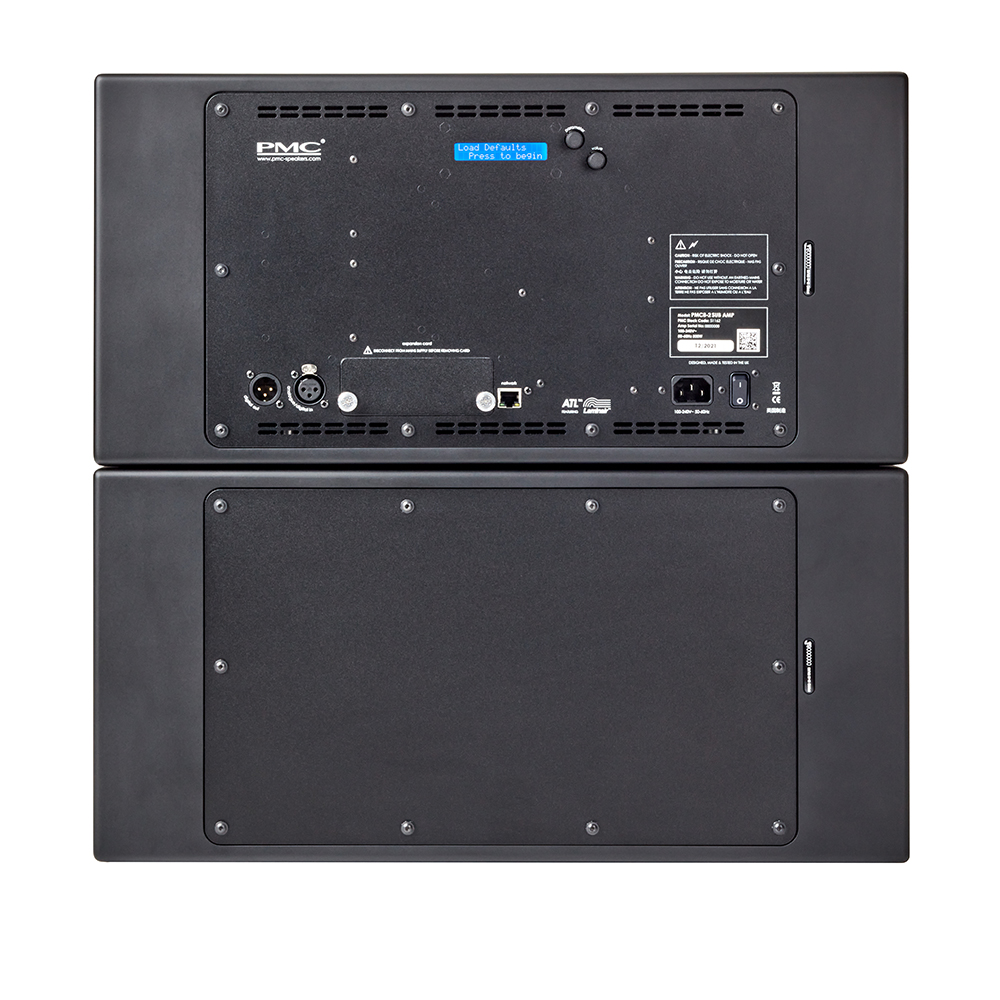The PMC 8-2 SUB is a true low-frequency monitor like the PMC8 SUB and offering the same DSP engine and seamless integration with surround and immersive systems, the PMC8-2 SUB betters the spec of its smaller sibling, offering higher maximum SPL output down to 25Hz.
With the same dimensions as the PMC8-2 midfield monitor, the PMC8-2 SUB’s twin eight-inch bass drivers are powered by independent 400W Class-D amplifiers. The same configuration options are available as on the PMC8 SUB, likewise accessible on the speaker’s rear panel or by using the browser-based SoundAlign™ software via a LAN-connected tablet, smartphone or computer.
The PMC8-2 SUB can be used as a standalone subwoofer for multichannel and immersive sound systems, or as an XBD cabinet with either PMC6-2 or PMC8-2 s, creating a system of awesome power and dynamic range. The sub is available in either left- or right-handed cabinet versions (PMC8-2 SUB-L or PMC8-2 SUB-R), to allow placement of the bass drivers on the outside edges of a stereo array, matching the arrangement of the main monitors.
- Active subwoofer with twin 8-inch bass drivers and ATL™ bass loading
- Frequency response: 25Hz - 500Hz (- 3dB) (@1m full space, on-axis)
- Max. cont. SPL: 115dB @1m (quarter space value calculated as +3dB from half space measurement.
Unweighted input,20-20kHz Pink Noise (IEC) with 12dB CF for 2 hours AES2-1984 duration) - State-of-the-art Class-D amplifier: 2 x 400W
- Analogue/AES3 digital input (16/24-bit, 18 -192kHz sample rate)
- Digital ‘through’ output (AES3 24-bit, 96kHz)
- SoundAlign™ network control interface for single or group EQ & settings
- Sophisticated DSP driver protection, EQ, and delay/phase options
- Dedicated XBD configuration mode







